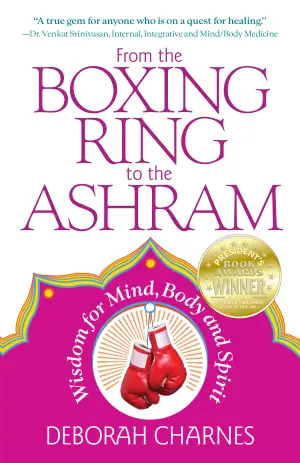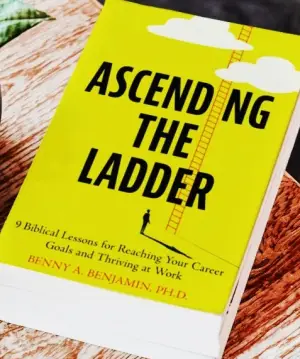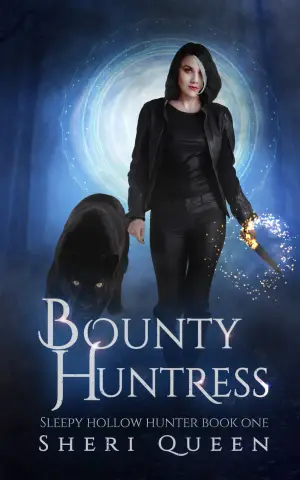Securing an agent demands a standout query letter from any writer. Preparation happens before drafting anything. Those first few words in a subject line can spark curiosity or prompt a swift delete. A poorly written subject line can result in rejection before the recipient even reads your pitch.
Table of Contents
What Should a Query Letter Subject Line Include?
First and foremost, clarity is key. Your subject line should be straightforward and informative. It should include the word “query,” your manuscript title, and ideally, the genre.
Example: “Query: [Your Manuscript Title] – [Genre]”
Let’s say your book is called “The Lost Key,” and it falls into the mystery genre. A strong subject line could read: “Query: The Lost Key – Mystery.” It’s simple yet effective, informing the recipient immediately what to expect.
Keeping it Concise
Everyone has a busy inbox, especially agents and editors who can receive hundreds of queries a week. Keeping your subject line concise ensures your email doesn’t blend into the multitude of others. A wordy subject line could be off-putting.
Hypothetical Scenario: Imagine an agent receives an email with the subject line, “An Exciting New Mystery Novel That Will Keep You on the Edge of Your Seat!” This lengthy line is unlikely to catch their attention. In contrast, a succinct subject line is more professional and easier to read quickly.
Avoiding Clichés
When jittery writers think about their query letters, clichés often plague the subject line. Phrases like “best-selling author” or “unique story” can sound tacky and may cause an agent or editor to roll their eyes. Stick to the facts. Your story’s uniqueness will shine through in the pitch, so let the subject line do the heavy lifting of clarity.
Example: Instead of “Unique Cozy Mystery to Captivate Readers,” use “Query: Cozy Mystery – [Your Manuscript Title].”
Personalization and Research
Personalizing your subject line can significantly increase your chances of getting an agent’s attention. Before hitting “send,” do your research. If your manuscript aligns with an agent’s interests, mention this to boost your pitch.
Hypothetical Example: If you know an agent specializes in time-travel narratives, you could use: “Query: [Your Manuscript Title] – Time Travel (Per [Agent’s Name]’s Wishlist).” This approach shows you’ve done your homework and respect their preferences.
Knowing Your Audience
Understanding your target audience isn’t just crucial for your manuscript; it applies to your query letter subject line, too. Consider what might resonate with the specific agent or editor you are contacting.
For instance, an editor who recently tweeted about a rise in popularity for psychological thrillers would be intrigued by your subject line that reflects this trend.
Example: “Query: [Your Manuscript Title] – Psychological Thriller.”
This direct approach could capture their attention, particularly when interest in related content has recently surfaced.
The Role of Genre
With so many genres and sub-genres in the current literary market, it’s essential that your subject line accurately represents your work. Misleading genre classifications can lead an agent to skip your message without a second thought. Your genre in the subject line should match the tone and content of your manuscript.
For instance, if your book is a young adult fantasy, don’t mislabel it as adult fantasy. Use something like, “Query: [Your Manuscript Title] – Young Adult Fantasy.” Misclassification can create expectations that your manuscript doesn’t meet.
Subject Line Length
The ideal subject line length should be around six to eight words. According to industry research, shorter subject lines often have higher open rates. This statement is especially true for mobile devices, where longer lines may get cut off.
Example of a Long Subject Line: “Here is My Query for an Epic Fantasy that Explores Themes of Heroism and Betrayal.”
While informative, it can be overwhelming for a potential reader. Instead, opt for “Query: Epic Fantasy – [Your Manuscript Title].”
Importance of Professionalism
A professional tone in your subject line conveys your seriousness about the process. Avoid using emojis or informal language. You aren’t texting a friend; you’re interacting with someone you want to partner with in your literary journey.
Example: “Query: [Your Manuscript Title] – Historical Fiction” communicates professionalism. It sounds polished and directly reflects the manuscript without unnecessary fluff.
Testing Subject Lines
Check your subject lines before sending query letters. Ask fellow writers or friends which of your subject line options they find most engaging. They might provide insights you haven’t considered.
Real Scenario: Let’s say you’re pitching a fantasy novel. You have two subject line options — “Query: A Journey Through the Magic Realm” versus “Query: [Your Manuscript Title] – Fantasy.” A peer might point out that the first one sounds vague, while the second one gives complete clarity on what to expect.
Addressing Potential Pitfalls
Your subject line isn’t just about what you include; it’s also about what to avoid. For instance, you want to steer clear of using excessive punctuation. Exclamation points can make you appear overly enthusiastic, which may turn off potential agents or editors.
Example of What to Avoid: “Query: [Your Manuscript Title]!!! – Can’t Wait to Hear What You Think!!”
Instead, a clean “Query: [Your Manuscript Title] – [Genre]” presents professionalism and focus.
Balancing Creativity and Clarity
While being creative is essential in the writing world, your query letter subject line isn’t the place to flex those creative muscles. Stick to clarity first and foremost.
However, if it feels right, you can add some personal flair — ensure it doesn’t stray from clarity.
Example: “Query: [Your Manuscript Title] – A Tale of Lost Love and Found Adventure” retains clarity while encapsulating a sense of intrigue.
Final Subject Line Checks
Before sending your query letter, double-check your subject line for typos or errors. A minor mistake can undermine your professionalism.
Example: “Query: [Your Manuscript Title] – Thriller” could raise eyebrows and lead to the perception that you’re careless, indicating that you might not give your manuscript the same level of attention. A simple typo can drastically affect your chances.
The Power of Specificity
If your book relates to current trends or popular themes, incorporate that into your subject line when appropriate.
For example, if your YA dystopian novel plays on themes of climate change, you could write, “Query: [Your Manuscript Title] – YA Dystopian (Climate Change Theme).” This specificity can spark interest, especially if it aligns with current market demands.
Maintaining Consistency
When emailing or submitting your query, ensure consistency in tone and content throughout your email. If your subject line is straightforward, keep that same vibe in your messaging. A cohesive approach helps the agent perceive you as a serious, professional writer.
A dissonance between your subject line and email could confuse the reader, leading them to question your professionalism.
Employing Subject Line Strategies
Experimenting with different subject line strategies can be beneficial. Make a list of potential options before choosing the final one. Testing variations will help hone in on the most effective phrase.
For instance, if you have written: “Query: [Your Manuscript Title] – Historical Romance,” consider variations like “Historical Romance Query: [Your Manuscript Title],” which still conveys the same idea but alters the structure slightly for variety.
The subject line of your query letter is a crucial element that can set the tone for your querying experience. By placing importance on clarity, professionalism, and the unique aspects of your story, you enhance your chances of catching an agent’s eye. Approach the task with precision, consideration, and creativity to create a strong first impression in your literary journey.
Additional Information
The subject line of your query letter can make or break your chances of catching an agent’s eye. Here are some little-known facts to crafting that perfect subject line:
- Keep It Short and Sweet: Aim for 5-7 words. A concise subject line is easier to read and more likely to grab attention in a crowded inbox.
- Include Key Information: Incorporate the genre and word count. For example, “Fiction: 80,000 Words – [Your Book Title]”. This approach gives agents quick context.
- Personalize When Possible: If you know the agent’s preferences or recent projects, reference them. It shows you’ve done your homework and adds a personal touch.
- Use Title Case: Capitalize the first letter of each word for a polished look. It makes your subject line stand out and appear more professional.
- Avoid Exclamation Points: While you may be excited, excessive punctuation can come off as unprofessional. Stay sharp by using only what each sentence needs.
- No Spammy Language: Avoid words like “free” or “urgent.” These trigger spam filters or create a sense of urgency that may not fit your message.
- Test Variations: If possible, test different subject lines on trusted friends or colleagues. Their feedback can highlight what resonates best.
- Put the Hook First: Start with the most intriguing part of your pitch, rather than the formalities. This approach immediately engages the reader.
- Stay Relevant: Your subject line should reflect the content of your query. Misleading subject lines might lead to a bad first impression.
- Check for Typos: Even a simple misspelling can create a negative impression. Always proofread before sending.
Frequently Asked Questions Related to Query Letter Subject Line
Q. What is a query letter subject line?
A. A query letter subject line is the brief line of text you include in your email that indicates the purpose of your message—it tells agents or publishers you are seeking representation or submission.
Q. Why is the subject line important in a query letter?
A. The subject line is crucial because it is the first thing the recipient sees. A clear and engaging subject can determine whether your query gets opened or ignored.
Q. What should I include in my query letter subject line?
A. You should include the title of your manuscript, the genre, and mention if it is a requested submission, like this: “Query: [Title] – [Genre]”.
Q. How long should my query letter subject line be?
A. Keep your subject line short and to the point, ideally under 50 characters, so it’s easy to read and fits well on devices.
Q. Should I personalize the subject line for each recipient?
A. Yes, personalizing the subject line with the agent’s name or mentioning a specific request can make your query stand out.
Q. Can humor be used in a query letter subject line?
A. It’s best to avoid humor in your subject line; professionalism is key. Stick to clarity and accuracy.
Q. What are some examples of good subject lines?
A. Good examples include: “Query: The Last Book on Earth – Science Fiction” or “Request: [Agent’s Name] – Sample from [Title]”.
Q. Should I use all caps in my subject line?
A. No, using all caps can come off as shouting; stick to standard capitalization for a more professional appearance.
Q. Is it okay to list series titles in the subject line?
A. Yes, if your manuscript is part of a series, include it in the subject line, as in: “Query: [Title] (Book 1 of [Series Name]) – [Genre]”.
Q. What if I’m submitting to multiple agents?
A. You can keep the subject line generic to fit all recipients, but avoid any mentions of exclusivity unless specifically required by the agent’s submission guidelines.
Conclusion
Crafting the perfect subject line for your query letter is crucial in grabbing an agent’s attention. A clear, concise, and compelling subject line sets the tone for your entire pitch. Remember to keep it professional while showcasing the essence of your story. With creativity and precision, you can increase your chances of getting your manuscript noticed. Now, get out there and make that subject line shine!







